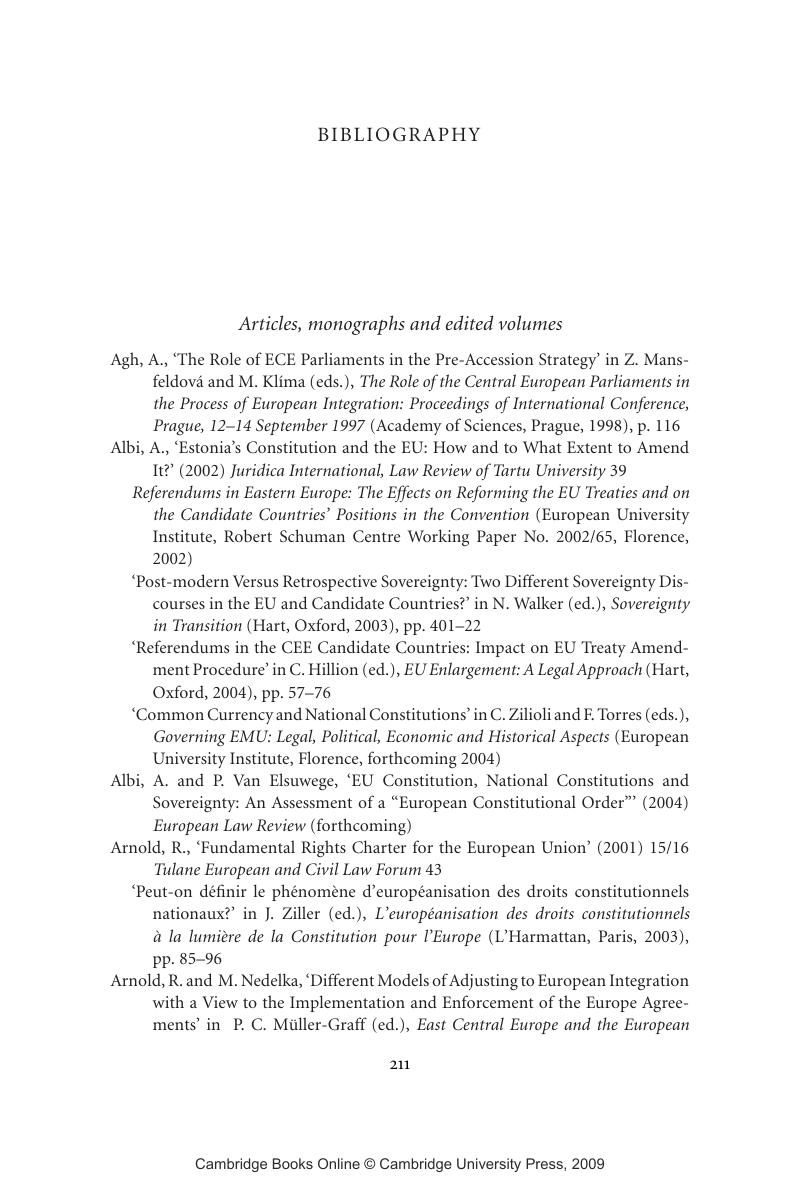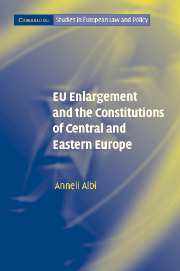Book contents
- Frontmatter
- Contents
- List of tables
- Series Editors' Preface
- Acknowledgements
- Table of cases
- Table of treaties, laws and other instruments
- List of abbreviations
- Introduction
- 1 Overview of the accession process
- 2 Constitutional adaptations in the ‘old’ Member States
- 3 Some idiosyncrasies of CEE constitutions
- 4 Constitutional issues in the pre-accession period
- 5 Revision of CEE constitutions for EU membership
- 6 Theoretical views of sovereignty and democratic legitimacy in CEE
- 7 Referendums
- 8 Membership of NATO and other international organisations
- 9 Role of Constitutional Courts
- 10 Implications of the European Constitution
- Epilogue: ‘Taking constitutions seriously’ in the process of European integration
- Bibliography
- Appendix
- Index
- References
Bibliography
Published online by Cambridge University Press: 28 July 2009
- Frontmatter
- Contents
- List of tables
- Series Editors' Preface
- Acknowledgements
- Table of cases
- Table of treaties, laws and other instruments
- List of abbreviations
- Introduction
- 1 Overview of the accession process
- 2 Constitutional adaptations in the ‘old’ Member States
- 3 Some idiosyncrasies of CEE constitutions
- 4 Constitutional issues in the pre-accession period
- 5 Revision of CEE constitutions for EU membership
- 6 Theoretical views of sovereignty and democratic legitimacy in CEE
- 7 Referendums
- 8 Membership of NATO and other international organisations
- 9 Role of Constitutional Courts
- 10 Implications of the European Constitution
- Epilogue: ‘Taking constitutions seriously’ in the process of European integration
- Bibliography
- Appendix
- Index
- References
Summary

- Type
- Chapter
- Information
- Publisher: Cambridge University PressPrint publication year: 2005



